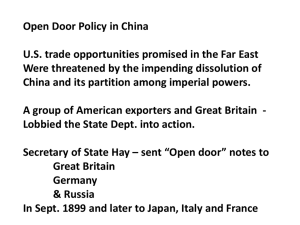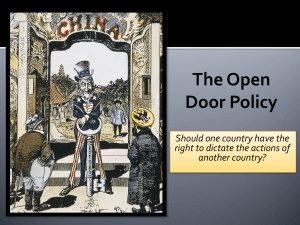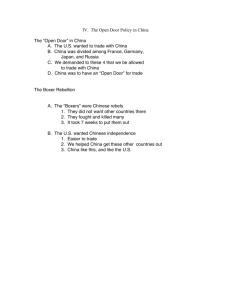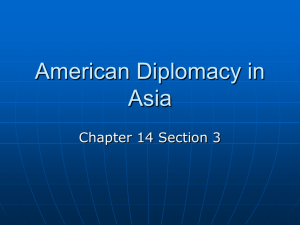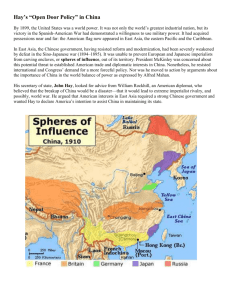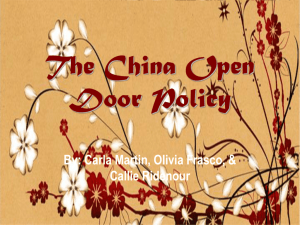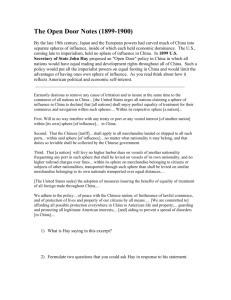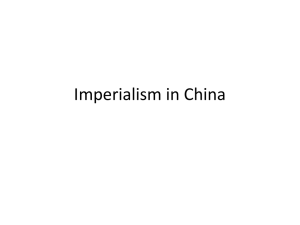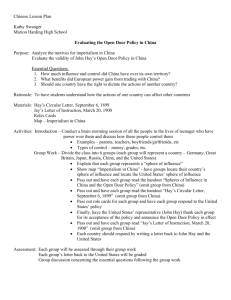Station #3: The Open Door Notes (1899-1900)
advertisement
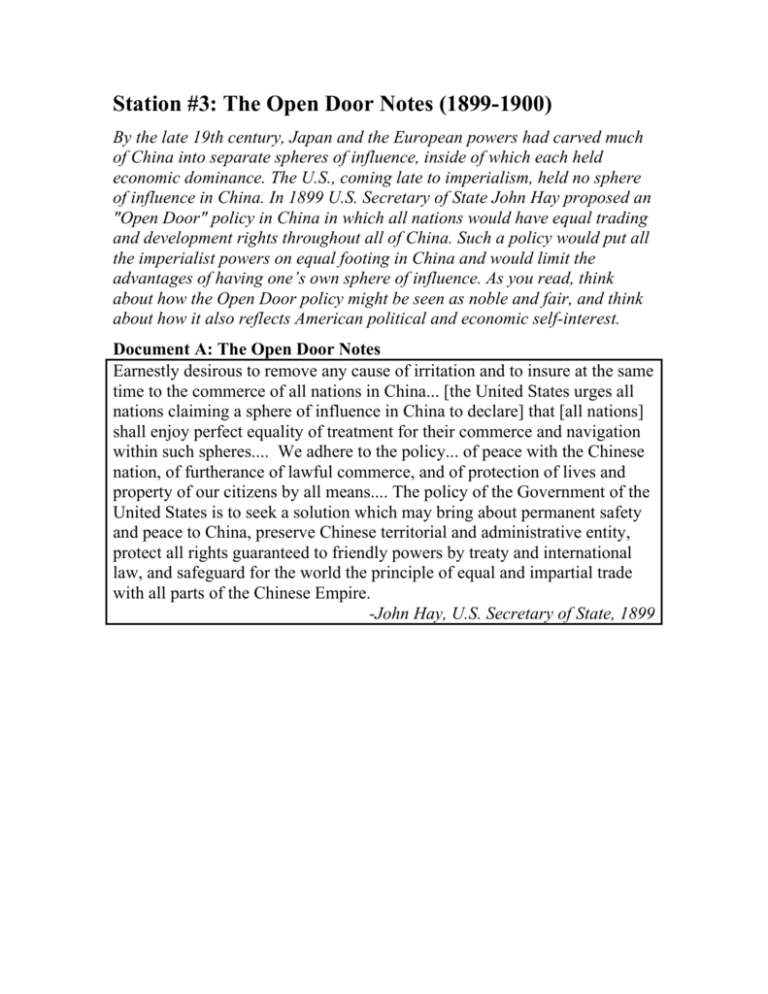
Station #3: The Open Door Notes (1899-1900) By the late 19th century, Japan and the European powers had carved much of China into separate spheres of influence, inside of which each held economic dominance. The U.S., coming late to imperialism, held no sphere of influence in China. In 1899 U.S. Secretary of State John Hay proposed an "Open Door" policy in China in which all nations would have equal trading and development rights throughout all of China. Such a policy would put all the imperialist powers on equal footing in China and would limit the advantages of having one’s own sphere of influence. As you read, think about how the Open Door policy might be seen as noble and fair, and think about how it also reflects American political and economic self-interest. Document A: The Open Door Notes Earnestly desirous to remove any cause of irritation and to insure at the same time to the commerce of all nations in China... [the United States urges all nations claiming a sphere of influence in China to declare] that [all nations] shall enjoy perfect equality of treatment for their commerce and navigation within such spheres.... We adhere to the policy... of peace with the Chinese nation, of furtherance of lawful commerce, and of protection of lives and property of our citizens by all means.... The policy of the Government of the United States is to seek a solution which may bring about permanent safety and peace to China, preserve Chinese territorial and administrative entity, protect all rights guaranteed to friendly powers by treaty and international law, and safeguard for the world the principle of equal and impartial trade with all parts of the Chinese Empire. -John Hay, U.S. Secretary of State, 1899
